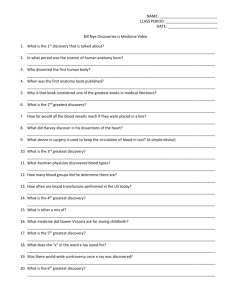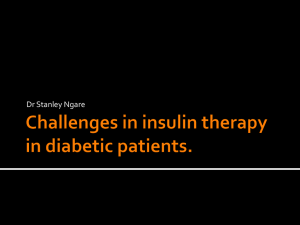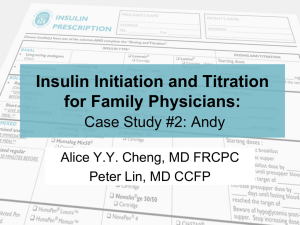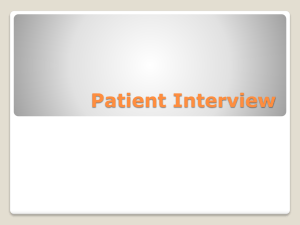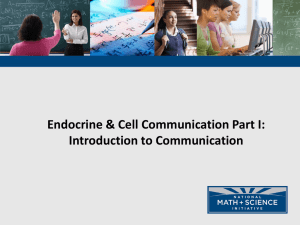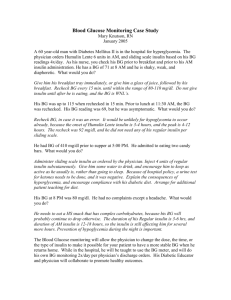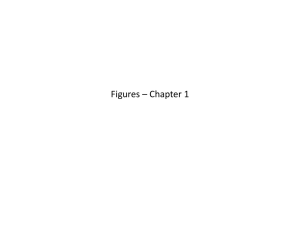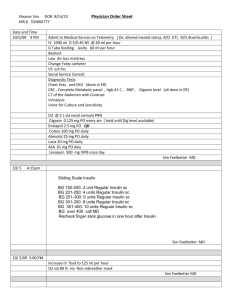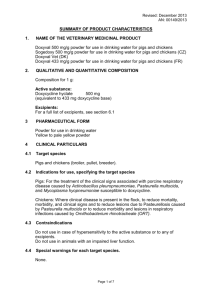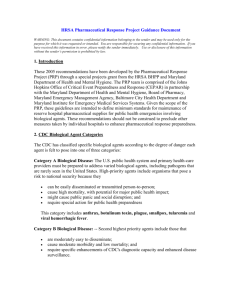SABCS 2014 abstract
advertisement
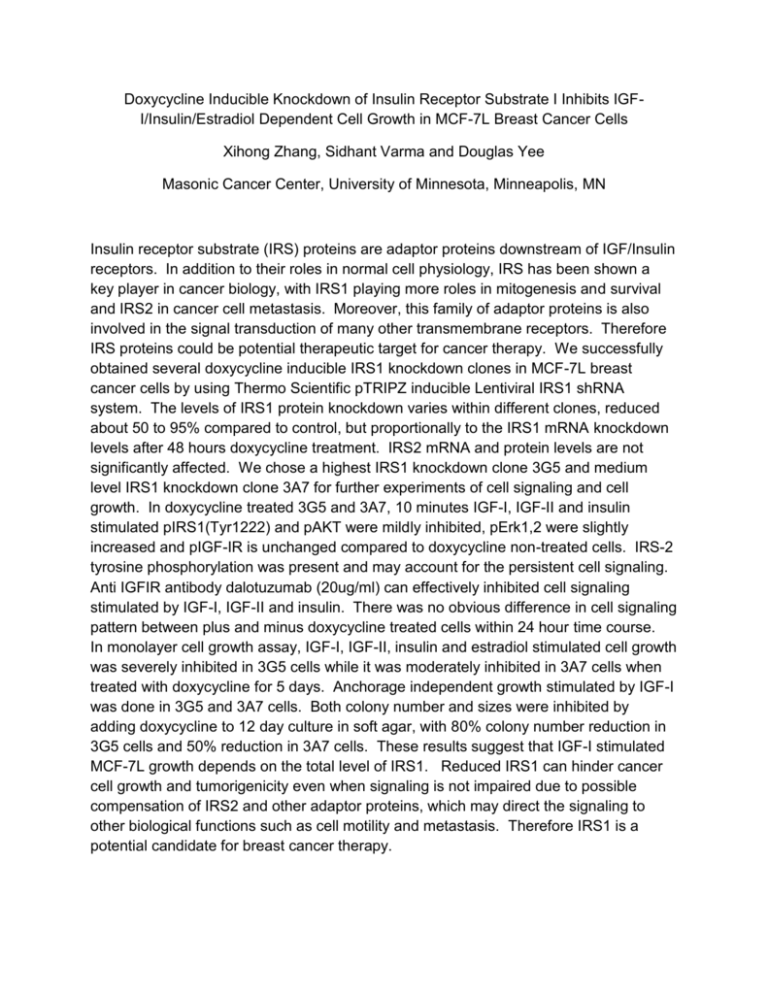
Doxycycline Inducible Knockdown of Insulin Receptor Substrate I Inhibits IGFI/Insulin/Estradiol Dependent Cell Growth in MCF-7L Breast Cancer Cells Xihong Zhang, Sidhant Varma and Douglas Yee Masonic Cancer Center, University of Minnesota, Minneapolis, MN Insulin receptor substrate (IRS) proteins are adaptor proteins downstream of IGF/Insulin receptors. In addition to their roles in normal cell physiology, IRS has been shown a key player in cancer biology, with IRS1 playing more roles in mitogenesis and survival and IRS2 in cancer cell metastasis. Moreover, this family of adaptor proteins is also involved in the signal transduction of many other transmembrane receptors. Therefore IRS proteins could be potential therapeutic target for cancer therapy. We successfully obtained several doxycycline inducible IRS1 knockdown clones in MCF-7L breast cancer cells by using Thermo Scientific pTRIPZ inducible Lentiviral IRS1 shRNA system. The levels of IRS1 protein knockdown varies within different clones, reduced about 50 to 95% compared to control, but proportionally to the IRS1 mRNA knockdown levels after 48 hours doxycycline treatment. IRS2 mRNA and protein levels are not significantly affected. We chose a highest IRS1 knockdown clone 3G5 and medium level IRS1 knockdown clone 3A7 for further experiments of cell signaling and cell growth. In doxycycline treated 3G5 and 3A7, 10 minutes IGF-I, IGF-II and insulin stimulated pIRS1(Tyr1222) and pAKT were mildly inhibited, pErk1,2 were slightly increased and pIGF-IR is unchanged compared to doxycycline non-treated cells. IRS-2 tyrosine phosphorylation was present and may account for the persistent cell signaling. Anti IGFIR antibody dalotuzumab (20ug/ml) can effectively inhibited cell signaling stimulated by IGF-I, IGF-II and insulin. There was no obvious difference in cell signaling pattern between plus and minus doxycycline treated cells within 24 hour time course. In monolayer cell growth assay, IGF-I, IGF-II, insulin and estradiol stimulated cell growth was severely inhibited in 3G5 cells while it was moderately inhibited in 3A7 cells when treated with doxycycline for 5 days. Anchorage independent growth stimulated by IGF-I was done in 3G5 and 3A7 cells. Both colony number and sizes were inhibited by adding doxycycline to 12 day culture in soft agar, with 80% colony number reduction in 3G5 cells and 50% reduction in 3A7 cells. These results suggest that IGF-I stimulated MCF-7L growth depends on the total level of IRS1. Reduced IRS1 can hinder cancer cell growth and tumorigenicity even when signaling is not impaired due to possible compensation of IRS2 and other adaptor proteins, which may direct the signaling to other biological functions such as cell motility and metastasis. Therefore IRS1 is a potential candidate for breast cancer therapy.
